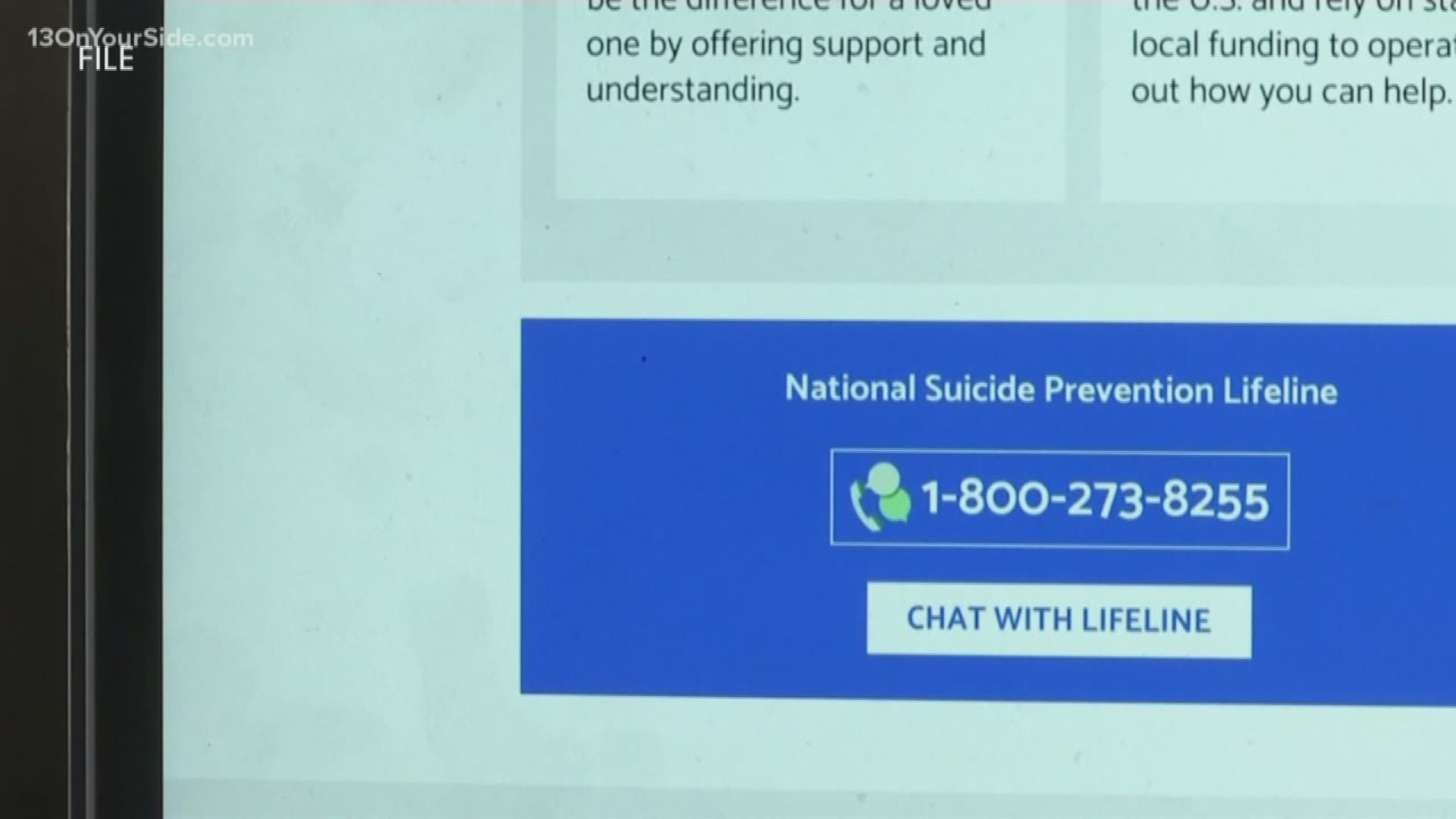GRAND RAPIDS, Mich. — Winter is one of the times each year when many people feel the effects of Seasonal affective disorder, which is also known as SAD.
Depression levels and other behavioral health concerns are higher during the winter months. The lack of sunshine, the cold, and even Valentine's Day being right around the corner can all add up to make people feel down.
Did you know that suicide hotlines receive twice as many calls on Valentine's Day? People struggling with their relationship status can feel isolated, and stuck when they see people around them celebrating a holiday that is focused on romantic love and partnerships.
Priority Health joined 13 ON YOUR SIDE on Tuesday and talked about how to fight the gloom and mental health struggle of this time of year.
So, what is Seasonal affective disorder?
It is a type of depression that comes and goes with the seasons. It typically starts in the late fall and early winter and goes away during the spring and summer. Depressive episodes linked to the summer can occur, but are much less common than winter episodes. You may also hear someone refer to SAD as the "winter blues". SAD is not a separate disorder from depression. It simply is a type of depression that displays a recurring seasonal pattern. SAD is estimated to affect about 10 million Americans. Another 10-20% of Americans may have mild SAD.
The biggest thing you can do to combat SAD is to make efforts toward your mental health.
- Take care of your body.
- Eat nutritious meals.
- Avoid cigarettes, alcohol, and other drugs.
- Drink plenty of water.
- Exercise. It helps decrease depression/anxiety and improves your mood.
- Get enough sleep
- Surround yourself with good people. People with strong family and social connections are generally healthier than those who lack a support network.
- Give yourself. People often feel good about volunteering their time and energy to help out someone or a cause they support.
- Learn how to deal with stress.
- Practice good coping skills. Try one Minute Stress Strategies, to Tai Chi, exercise, take a nature walk, play with your pet, or try writing in a journal as ways to reduce stress. Try to smile and see the humor in life. It will lighten the load.
- Quiet your mind.
- Break up the monotony. A change of pace will perk you up if you are feeling stuck in a schedule.
- Get help when you need it. The National Suicide Prevention Lifeline number is 1-800-273-8255, or you can chat with someone from their webpage.
One in five adults in the United States experience mental illness each year. About 43% of adults in the U.S. with mental illness received treatment in 2018. Among people 10 - 30 years old, suicide is the second leading cause of death in the U.S.
Common signs of mental illness:
- Change in feelings or demeanor
- Loss of interest
- Change in sleeping habits
- Low energy
- Difficulty interacting
- Appetite or weight changes
- Uncontrollable emotions
Common side effects of stress:
- Headaches
- Insomnia
- Upset stomach
- Over-eating
- Excessive drinking
All Priority Health members have access to 24/7, confidential, over-the-phone assistance. This can help patients determine what their plan covers, and how to find providers who can help combat SAD. That number is 800-673-8043. You can also call the National Suicide Prevention Lifeline at 800-273-8255. There is also the Spectrum Health app which provides virtual care for anxiety, depression, grief, stress, and sadness.
RELATED VIDEO:
More mental health news on 13 ON YOUR SIDE:
►Make it easy to keep up to date with more stories like this. Download the 13 ON YOUR SIDE app now.
Have a news tip? Email news@13onyourside.com, visit our Facebook page or Twitter.


